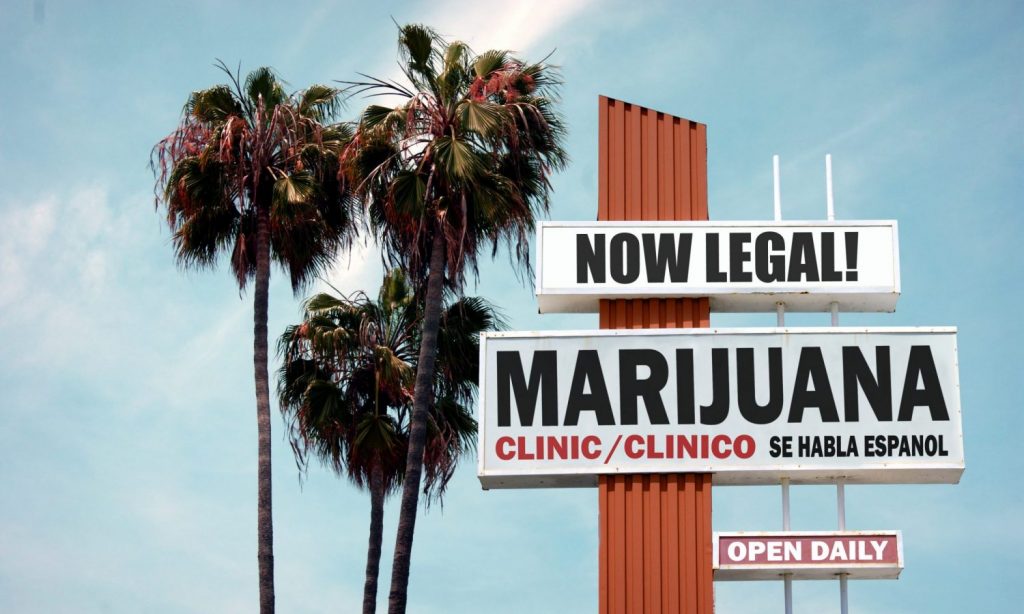
73% of all marijuana bought and sold in California is sold in the illicit market
This article originally appeared on Cannabis.net and was republished with permission.
A crisis in the California cannabis industry is looming on the horizon. Prominent cannabis companies in California have warned of an impending collapse of the state’s cannabis industry.
In a letter dated December 17, the group warned Governor Gavin Newsom of the burdens caused by the high taxes imposed on operators in the industry. Avoiding the looming disaster will require rapid expansion of cannabis retail stores to stabilize the market, according to the group. The letter was also sent to the legislative leaders in Sacramento, as the group understands that the executive needs the support of the legislature to make changes in the industry. In addition, the group proposes to temporarily suspend or significantly reduce mandatory taxes.
Photo by Mikhail Nilov from Pexels
Some of the companies, executives, and groups that have signed the letter include the California Branch of the National Organization for the Reform of Marijuana Laws, the California Cannabis Industry Association, CannaCraft, Flow Kanna, and the Los Angeles-based United Cannabis Business Association.
A drastic change is needed
In the letter, they stated that the industry was on the verge of collapse. The industry has been heavily taxed and little has been done to improve the conditions of the industry, despite the enormous sums of money the companies make annually. The California market has more or less stagnated since its inception and is now deteriorating rapidly.
Very little has been done to stabilize the shaky industry since 2016, when the state passed Prop 64. In the letter, the industry was described as an endless roller coaster ride.
While it cannot be denied that legislation has given the state massive economic impetus, it must also be said that this current industry mess is not what residents expect or deserve.
The industry leaders praised the state government for generating significant income from the industry for the state coffers. However, they also said the sector has suffered severe setbacks due to efforts by local governments to bypass bureaucratic red tape at the country level.
A collapsing industry
Just four years after the state’s cannabis industry began operating, operators not only struggle with tax payments, but also compete with illegal cannabis operators for profit.
According to the details in the letter, the group said the current rules and regulations governing the industry have not helped legal operators in any way. Instead, it seems like it was founded to make sure the industry collapses. The group stressed that this is not the first warning to the state government. There have been a number of complaints against the state cannabis regulatory agency for several months, but nothing has been done.
 Photo by Yarygin / Getty Images
Photo by Yarygin / Getty Images
Industry representatives and executives have reported on the high taxes and restrictive regulations several times. They backed up their complaints with evidence that they were unable to compete against the widespread black market for cannabis in various states. They added that consumer prices were meager in illegal markets; therefore the turnover is at least twice as high as that of the legal markets. Legal cannabis products are fifty percent more expensive than illegal cannabis products. Some are pushing for a tax-free cannabis sector to tackle illegal market prices in California.
About 73% of all cannabis consumed in California is produced and sold on the black market. This means that most of the cannabis products consumed by Californians are untested and unsafe for consumption. The leaders told the state government they had enough. The government’s inaction to do anything useful in the industry has pushed stakeholders to the limit.
Excessive taxation has paralyzed the industry and given away opportunities for expansion. To an outsider, California has one of the largest cannabis industries, but it takes more information to understand that the state could have a more resilient legal market.
Industry needs help
The letter, co-signed by the state’s top officials and advocates of the cannabis industry, specifically said that the problems facing the industry require the help of the state government, as these challenges are too numerous to be tackled and mastered by the industry on its own.
RELATED: Are High Government Marijuana Taxes Really Behind the Persistent Black Market?
The first aid needed is an immediate lifting of the cultivation tax imposed on all legal cannabis growers in the state. The letter also listed a request for three-year leave from excise duty. In addition, the team is calling on the state government to expand retail stores across the country. In a state as large as California, only a third of the cities have cannabis dispensaries. The lack of pharmacies in two-thirds of the cities in the state can be attributed to the indolence of local governments in granting sales and production permits to applicants.
 Photo by smodj / Getty Images
Photo by smodj / Getty Images
Other requirements
At a press conference on the contents of the letter, the co-signers urged state regulators to abolish the mandatory 15 percent cultivation tax and excise tax on sales. They also advocated that the state begin granting applicants more licenses so that the expansion process can begin.
RELATED: These states have the highest cannabis sales taxes in America
Erin Mellon, the governor’s representative, said Governor Newsom fully supports the cannabis tax reforms. She also stated that the governor agreed with the group’s request to revise the system to curb illegal activity within the sector. She also acknowledged that the current mandatory taxes pose major challenges for the advancement of the industry.
She ended her statement with a promise that the governor is ready to work with lawmakers to bring about a success in much-needed tax reform efforts.
Bottom line
The unwillingness of the state executive and legislature to effectively enact, implement, or execute law – and also to coordinate a fully functioning cannabis industry – is at the root of all the problems that have plagued the California cannabis industry.
These politicians and lawmakers must immediately deliver on their promises to eradicate the state’s black market for cannabis. Frankly, it doesn’t make sense that a state’s illegal cannabis market is at least twice the size of its legal market.
The sooner these issues are resolved, the sooner legal operators can get their earned profits while making the industry the most robust legal cannabis industry in the United States.
This article originally appeared on Cannabis.net and was republished with permission.

Post a comment: